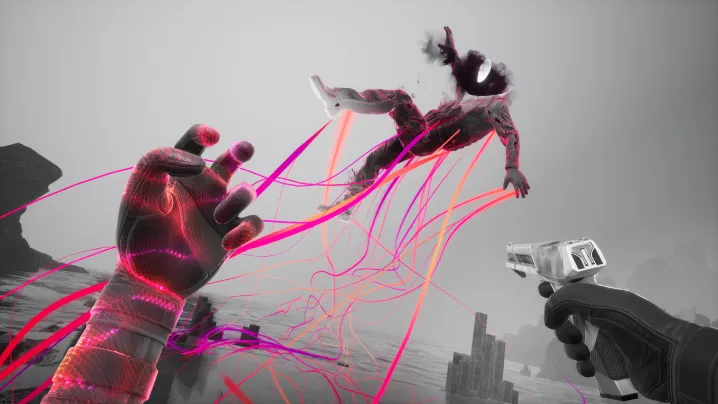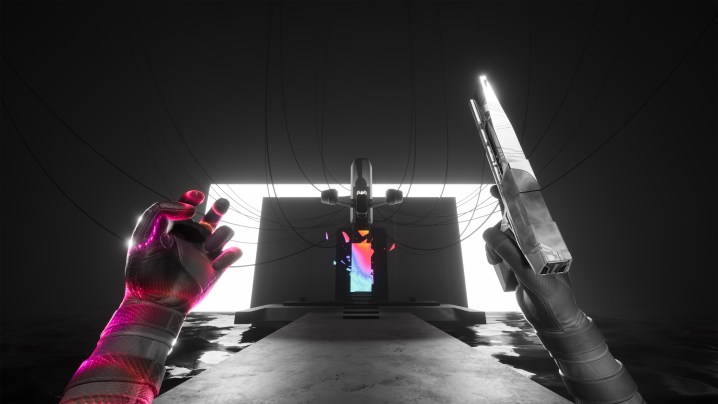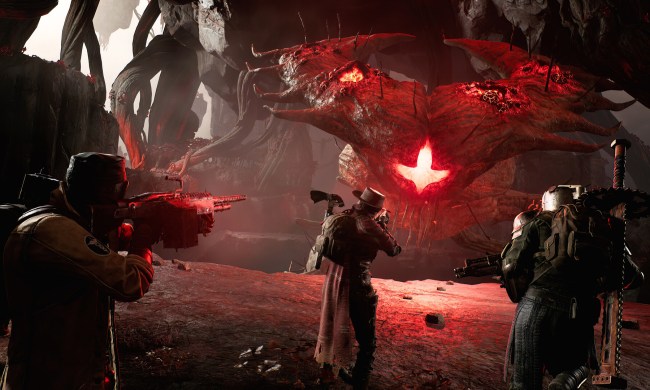Roguelike FPS Synapse is now available on PlayStation VR2 and tasks players with fighting off horde after horde of enemies within the mindscape of a rogue agent. The crux of Synapse’s progression comes from challenges players can complete mid-run. After a run ends, players are rewarded with a currency called Insight for each challenge that they completed. This insight can then be spent on upgrades in a skill tree, which make the player more powerful with each subsequent run.
That said, the number of options players have to choose from can be overwhelming at the start of the game. There are three different skill trees with multiple upgrade paths within them: Tactition, Assassin, and Survivor. While all of the upgrades will give you a boost of some sort, there is one upgrade in each of the categories that players should try to unlock as quickly as they can after they start playing Synapse. If you do pick up this PSVR2 game, these are the upgrades you should be unlocking as soon as possible.
Brutal Mind

Tactician upgrades focus on increasing the helpfulness of mid-run boosts and enhancing the player’s telekinetic abilities. By far, the most important one of these to unlock is Brutal Mind, which has a description that reads, “Enemies can now be picked up with Telekinesis.” After purchasing this upgrade, one of the main gameplay hooks of Synapse is completely recontextualized and redefined.
Tossing enemies in the air or slamming them against walls to kill them quickly becomes one of the best strategies during combat after the Brutal Mind upgrade is unlocked. It also makes the game more fun, enabling the telekinetic power fantasy Synapse aims to provide. Essentially, this is one of the most helpful powers in the entire game, so don’t put off unlocking it for too long.
Polychronicity

Assassin upgrades are all weapon-focused, giving players access to new weapons, more ammo, and more. Of these, the most useful upgrade is called Polychronicity, which lets players “carry 2 weapons.” That’s a pretty self-explanatory power. As you collect more weapons, like SMGs, shotguns, and eventually a grenade launcher, being able to carry two weapons at once deepens the number of tools players have when heading into each new encounter.
The default pistol can be quite useful, especially when upgraded, so I tended to use that as well as the shotgun if I wanted to deal a lot of damage from a short range or a grenade launcher if I wanted to take out groups of enemies from afar. Being able to carry two weapons at launch is a core feature in most modern FPS games for good reason, but it’s something you have to unlock in Synapse. Once your telekinetic powers are upgraded, this should be the next thing pursued.
Deja Vu

Finally, there’s the Survivor category, which is centered around upgrades to the player’s health. Synapse is a roguelike, and healing opportunities are finite, so health-based upgrades are very helpful once all the telekinetic and weapon-based upgrades you want are unlocked. While upgrades that do things like increase the player’s health bar are helpful, we recommend that the first Survivor upgrade you purchase is Deja Vu.
“On death … rise to die again,” its description reads. This is a mid-run revive, a mechanic common in roguelite games. It’s not a full health heal, and the game could denote when it is happening better, but Deja Vu gives you a second win to learn from your mistakes and make it through a run, even if your health bar is depleted once. You can even unlock Deja Deja Vu to get a second reviving, although I’d recommend increasing your health before doing that.
With these three abilities unlocked, some fundamental mechanics that make Synapse a lot more enjoyable come into play. After that, what you choose to unlock is up to you!
Synapse is available now for PlayStation VR2.



